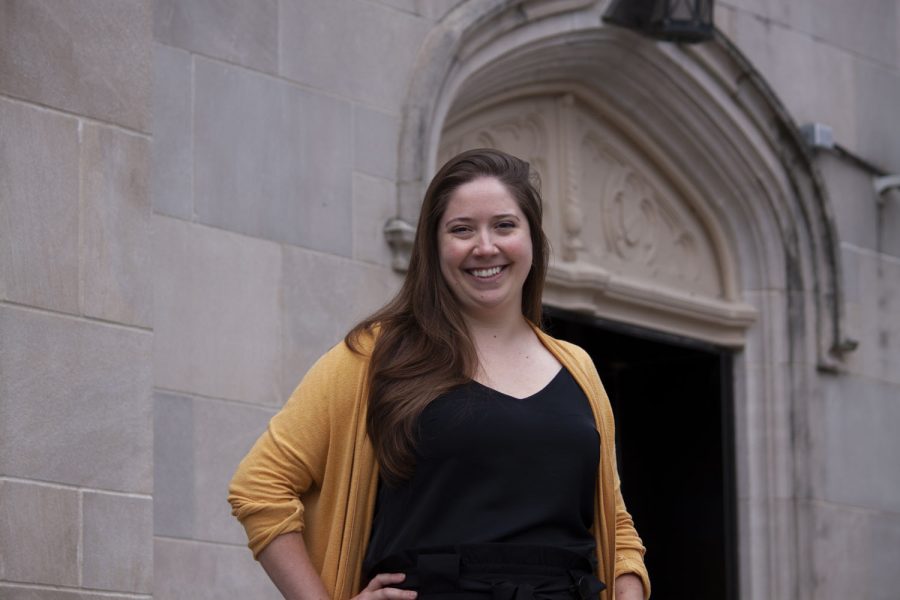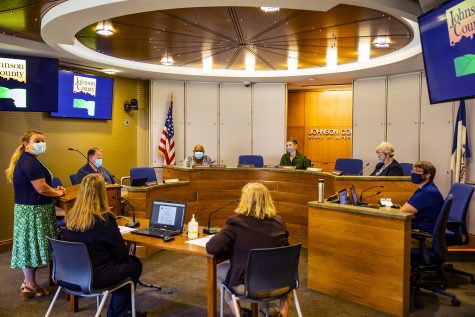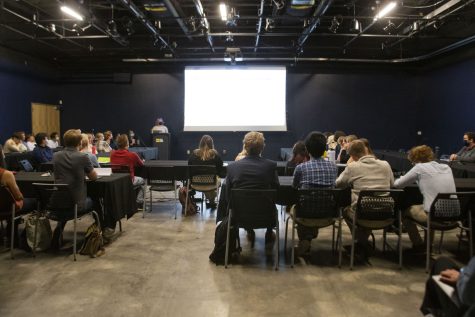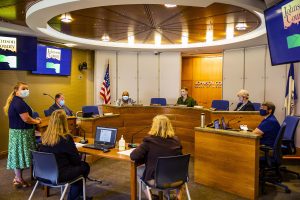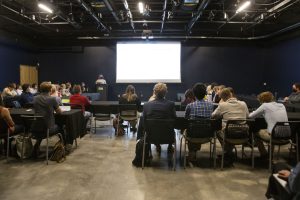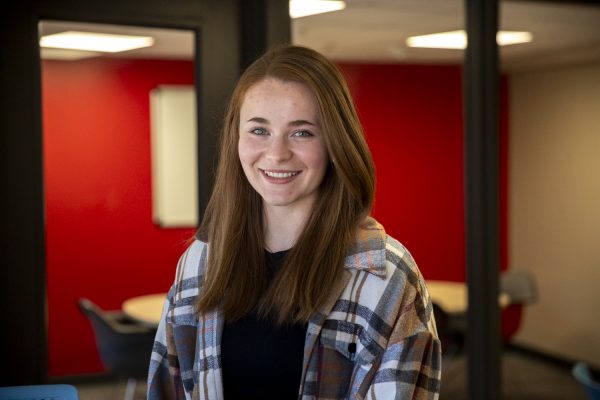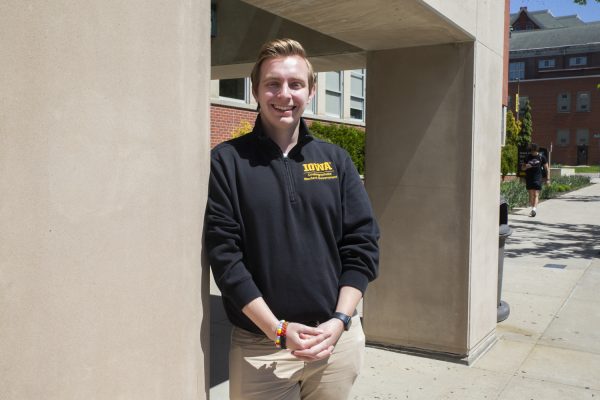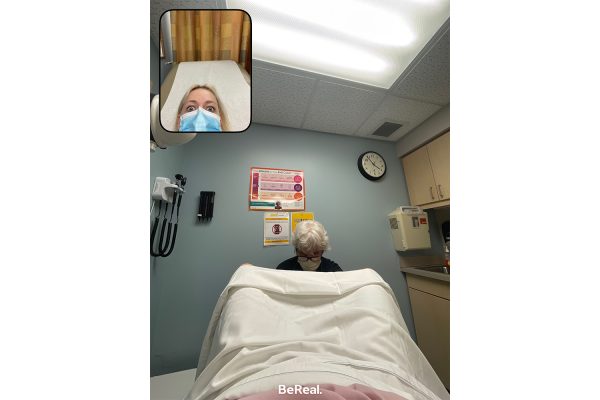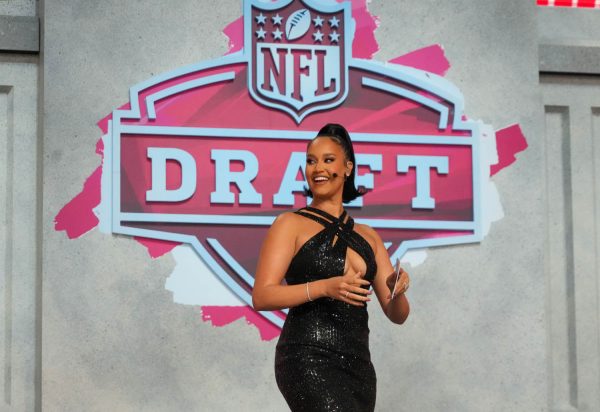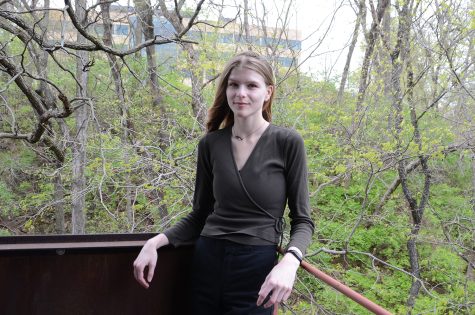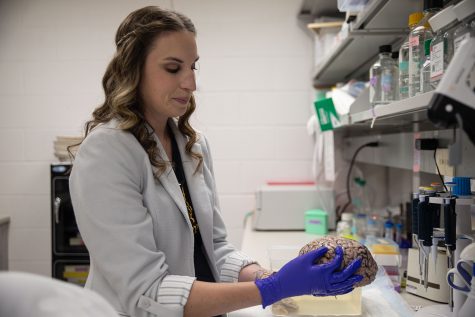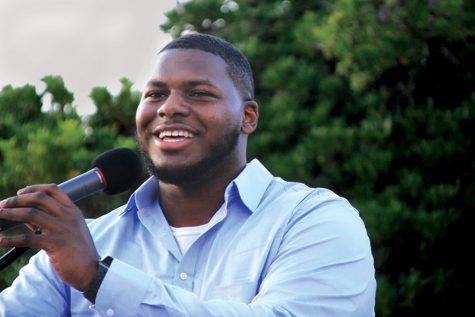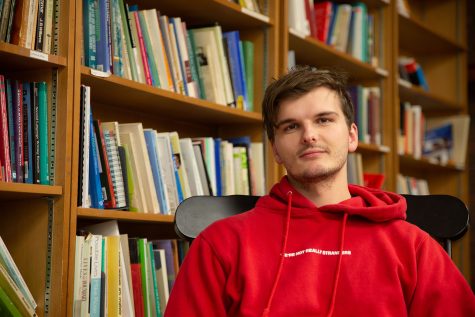UI neuroscientist empowers women to code
Postdoctoral neuroscientist Victoria Muller Ewald is starting a coding boot camp to encourage more students to learn the skill. She also mentors graduate students and has been involved in various coding initiatives.
Portrait of Postdoctoral Research Scholar, Dr. Victoria Muller Ewald on Oct. 6, 2021.
October 6, 2021
Going into graduate school, Victoria Muller Ewald said she never thought she could learn to code, let alone consider it would one day be integral to her research. Now, she’s involved in initiatives that encourage students from middle school to graduate school, women in particular, to code.
Currently a second-year postdoctoral fellow in the Iowa Neuroscience Specialty Program in Research Education, Muller Ewald said she studies the cerebellum and credits coding as an essential skill in the process.
“I went from studying the front side of the brain in animal models to studying the backside of the brain in humans — very different,” she said. “And the one thing that bridges the gap is that I know how to code.”
Muller Ewald said her current initiatives — like her upcoming coding boot camp through the UI’s neuroscience graduate club Hacky Hour, and her upcoming project for high schoolers within the national organization Girls Who Code — are a response to the lack of coding classes she had access to as a neuroscience graduate student.
She said she can’t wait to get her newest project with Girls Who Code off the ground. The project is a partnership with United Action for Youth, she said, but will not begin until the number of COVID-19 cases subsides.
“But when we’re allowed, I will be partnering with them to recruit high school girls and teach them how to code in Python,” she said.
As for the upcoming boot camp, she said she is working on the syllabus this week, and it should begin next month.
Before coding became essential to her graduate school work, Muller Ewald said she altogether avoided the task.
“In undergrad… a professor of mine said if you want to go to graduate school, take at least one coding class with the computer science department, and I said, ‘No way, that is way too intimidating. Put me in organic chemistry, put me in molecular biology, any day over Coding 101,’ so I didn’t do it, because I was scared.”
But she eventually learned to code in graduate school with the help of YouTube videos, various books, and her mentor, Jang Jin Kim, an assistant research assistant at the UI.
“It was extremely frustrating,” she said. “It was like learning a new discipline.”
Muller Ewald said the process took years, a length she hopes to shorten for younger students through clubs like Girls Who Code, Hacky Hour, and Iowa Tech Chicks.
Her involvement with Iowa Tech Chicks, a regional non-profit organization, directly addresses the gender gap in coding by encouraging girls as young as middle school and high school to learn to code. With the youngest girls, she said, most activities do not involve computers, whereas the older girls are learning different computing languages.
“They are really tackling the problem from the angle that it starts when we’re young, which is so true and so correct, that girls and boys have different coding opportunities, so they’re trying to provide these opportunities to girls,” she said.
The President of Women in Computing Sciences at the UI, Janhavi Bodkhe, said women in intro computer science classes have to put up with open bias and often lose confidence in introductory courses.
“Even after getting their degree when they look for a job, [there is] this internalized first narrative of ‘men are better at technology than women,’” Bodkhe said.
The current head of the club, UI graduate student Kerry Tarrant, said he is impressed with Muller Ewald’s ability to communicate with students and that she is a hardworking officer in the group.
Muller Ewald also mentors UI graduate students and helps them with coding every Wednesday afternoon via Zoom with Hacky Hour, a student-led graduate organization.
“It has been so rewarding,” Muller Ewald said. “People have been curious and motivated, and I’ve found that it hasn’t been something that people can’t learn.”
Gender disparities are another reason Muller Ewald said coding initially frightened her.
“It’s funny the subconscious power that representation has,” she said. “[It] didn’t cause me to say, ‘Oh that means I can’t do it, because there aren’t any other women,’ consciously.’’
The Chair of the UI’s Department of Computer Science, Alberto Maria Segre, wrote to in an email to *The Daily Iowan* that Computer Science, not just coding, faces a nationwide gender diversity issue.
“Research shows that girls and boys are equally interested in technology through age 10 or 11, girls rapidly lose interest in STEM+C fields by age 15,” he wrote. “As a public institution, we have a responsibility to help improve the pipeline even in the early stages.”
The UI’s undergraduate population is nearly 55 percent female. The computer science major is only around 14.7 percent female, according to the 2020 Computer Science Department Broadening Participation in Computing Plan.
Muller Ewald said she wants to increase female representation in coding and help female students get over the “unconscious hurdle” that she faced.
“I want to help students get over that,” she said.



